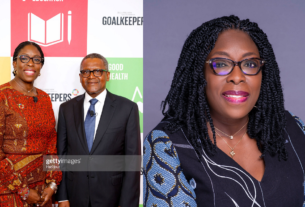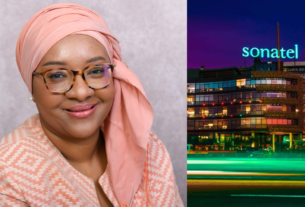Jean-Jacques Muyembe, a Congolese microbiologist who leads public health emergency responses in the Democratic Republic of Congo (DRC), including for COVID-19, is one of Harvard University’s honorary degree recipients for 2022.
During the 371st commencement on Thursday 26 May, Harvard celebrated a small cohort of accomplished leaders, conferring honorary degrees in person on four women and two men: a prime minister, three distinguished scholars, a public-sector infectious-diseases expert, and a feminist icon. In addition, setting aside its usual requirement that honorands be present to receive their degrees, the University also recognized a world food humanitarian who cannot attend the ceremonies for the understandable, awful reason that he is fully engaged in providing relief in war-torn Ukraine.
Dr. Muyembe-Tamfum, who has been awarded an honorary Doctor of Science (S.D.) degree, is head of the DRC’s Institut National de la Recherche Biomédicale in Kinshasa and the inaugural president of the Congolese Academy of Science. He was the first to discover the Ebola virus during his work in the first-ever outbreak in 1976, in central Congo. He took blood samples from a sick patient and sent them to be identified in Belgium, where colleagues had an electron microscope. Scientists there and in the U.S. were able to verify a new virus that caused hemorrhagic fever.
Dr. Muyembe also led the design of the first effective treatment against the virus, and pioneered the deployment of experimental Ebola vaccines. In 2009, he co-authored a paper demonstrating that the Ebola outbreaks in the DRC were due to fruit bat exposure.
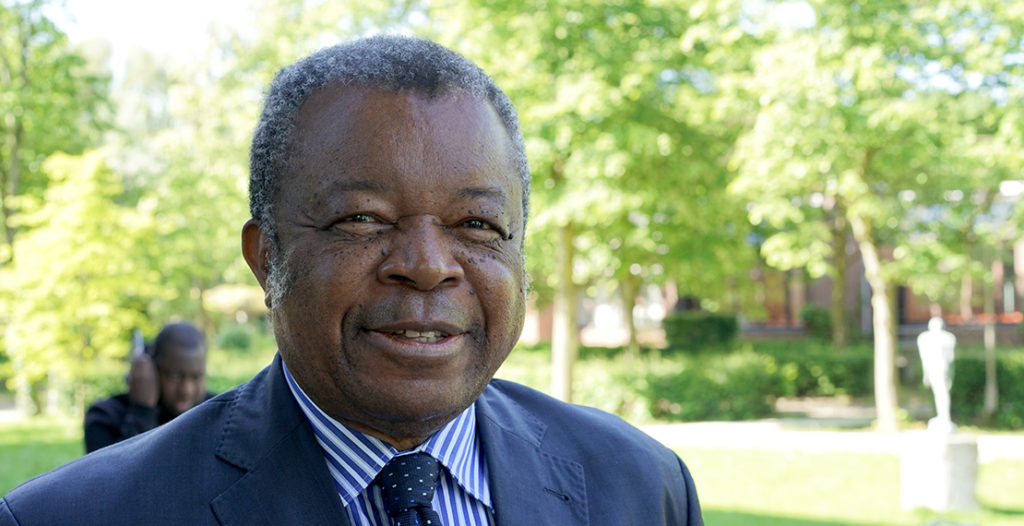
A 2015 Lancet article described Muyembe as “Africa’s Ebola hunter.” “ He was one of the lethal disease’s first survivors as well as its discoverer — though for four decades his work was improperly credited to a quartet of Belgian scientists. Writing in Time magazine’s 100 Most Influential People of 2020, Nobel Peace laureate Denis Mukwege said Jean-Jacques Muyembe Tamfum “greatly benefited the people of Congo as well as the entire world. … [H]is expertise, combined with that of other international scientists, will continue to be of great help in overcoming new scourges that we face.”
The first virologist ever to treat an Ebola patient
In 1976, Dr. Muyembe became the first virologist ever to treat an Ebola patient, and he has been at the forefront of every outbreak of the disease since. In 1995, he treated eight Ebola patients with blood from a survivor, and seven survived. Western researchers, said Harvard, rejected his finding because of the small sample size, but Muyembe used the observation to develop a monocolonal antibody to Ebola that was approved by the USDA in 2020. “If this observation was accepted at this time [1995], this product would have saved many, many lives. But it took more or less 20 years to recognize these first observations because it was done by the Congolese team,” Muyembe told the University of Washington. Today, Muyembe is a globally recognized leader in the fight against Ebola, the general director of the National Institute of Biomedical Research in the Democratic Republic of the Congo, and the inaugural president of the Congolese Academy of Science. His research on monoclonal antibody treatments has helped advance therapies to treat COVID-19 as well as Ebola, and as a key figure in World Health Organization efforts to combat infectious diseases, he has received honors including lifetime achievement awards from the African Union and Africa Centers for Disease Control and Prevention, the International Symposium on Filoviruses, and the Hideyo Noguchi Africa Prize.
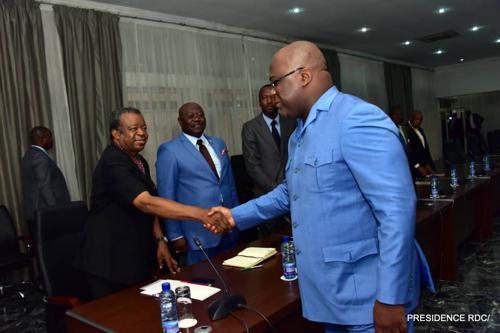
Dr. Muyembe has worked hard to build the DRC’s scientific capacity, establishing multiple research facilities in the country. He has also played key roles with the World Health Organization in fighting infectious diseases, and has received a number of prestigious awards and honors, including being named to Time magazine’s list of the 100 most influential people of 2020.
A lifetime commitment
Born in 1942 in the DRC and educated at the University of Lovanium (now University of Kinshasa), M.D. ’69, and the Rega Institute for Medical Research, Catholic University of Leuven, Belgium, Ph.D. ’73 (medicine/virology), Dr. Muyembe has been belatedly recognized for his contributions to the discovery of Ebola, stemming from field work in 1976, and for pioneering therapies to treat it.
From 1999 to 2000, under the World Health Organization, he was president of an international committee leading the fight against Marburg virus in the DRC, and from 2001 to 2014 of a similar committee under WHO’s aegis leading efforts against Ebola outbreaks in Gabon and the DRC.
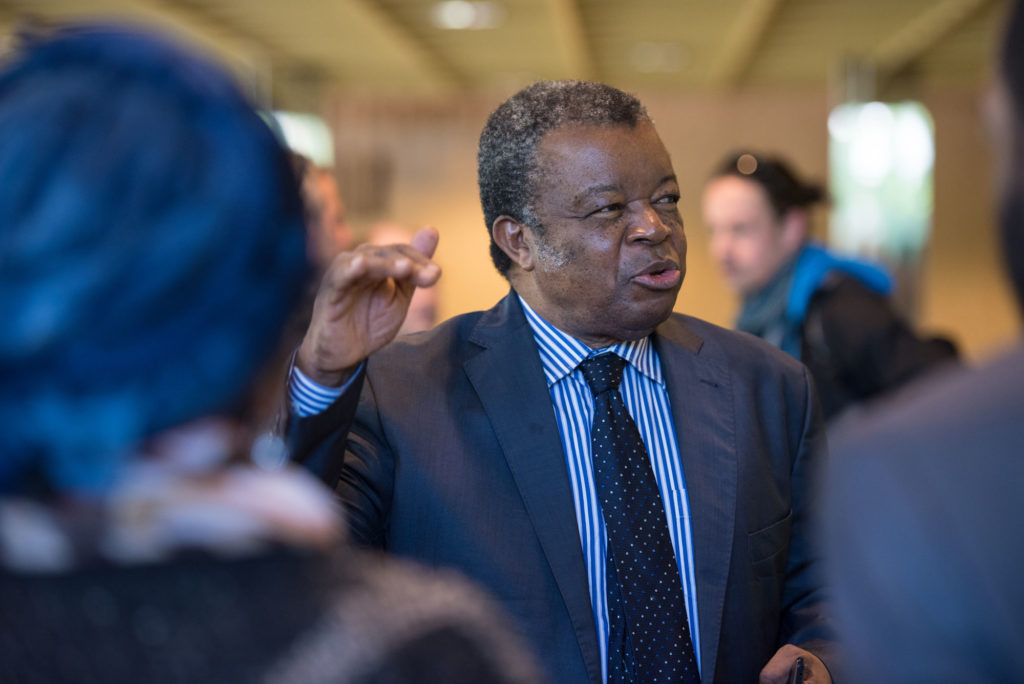
In 2019, during yet another outbreak of the lethal disease, Nature recognized him as one of 10 people who mattered most in science that year, noting that he…brings deep experience to the effort, along with a dedication to cutting-edge science. Beginning in 1995, he developed the key public-health measures still used to contain the virus. During a large outbreak in the DRC city of Kikwit, he realized that the most vital step was to converse with communities so that they trusted him and understood how to protect themselves. He found ways to bury the dead respectfully while minimizing the risk of infection. And he began investigations that would lead to the roll-out of effective Ebola drugs and vaccines. During this outbreak, he took blood from Ebola survivors and infused it into eight people who had been infected, in the hope that antibodies would quash the virus. Seven of the recipients survived.
Last month, recalls Harvard, a 680-person, controlled clinical trial led by his team showed a 90 percent survival rate for those treated with antibody-based drugs shortly after infection. One of the drugs, mAb114, is derived from an antibody from the blood of a survivor whom Muyembe recruited during the Kikwit outbreak. Nancy Sullivan, an immunologist at the U.S. National Institutes of Health in Bethesda, Maryland, attributes the success to Muyembe’s doggedness at the time. “His contribution was pivotal to show that you can do a trial in a chaotic outbreak,” she says.
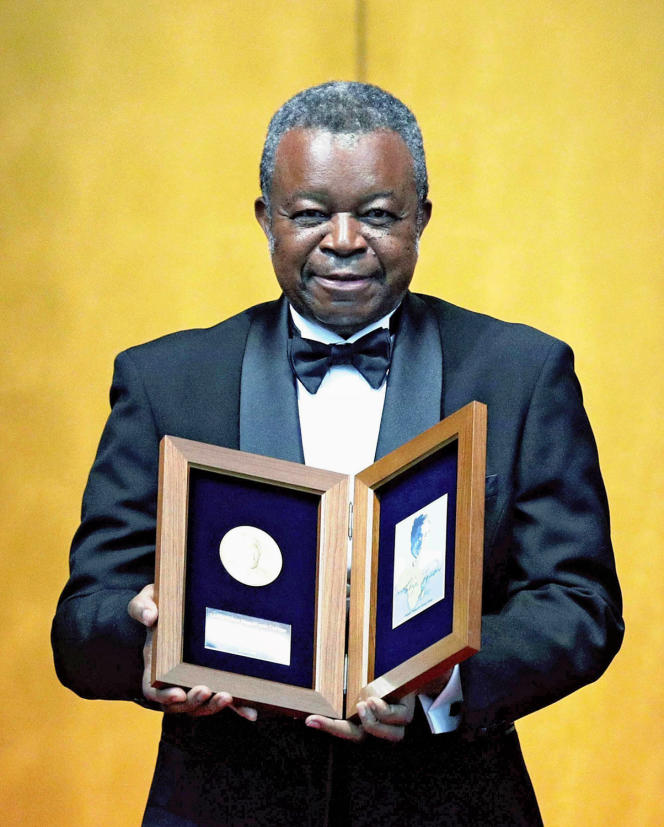
Of his dedication to fighting the disease, Nature continued, “[B]acking down has never been an option for Muyembe. David Heymann, an epidemiologist at the London School of Hygiene and Tropical Medicine, says: ‘He was there at the start and he is still there because he is so persistent.’”
The same year, he shared Japan’s Hideyo Noguchi Africa Prize for medical research. The prize announcement noted his “research to confront Ebola and other deadly viruses and efforts to train legions of disease-fighters.” As INRB’s director, said Harvard, in a country lacking almost all modern medical infrastructure, “He set up a research and surveillance infrastructure on vaccine-preventable diseases such as poliomyelitis, measles and yellow fever, on zoonoses such as monkeypox and viral hemorrhagic fever, and on acute respiratory infections such as influenza, and resistance of tuberculosis and enterobacteriacae to antibiotics.”

